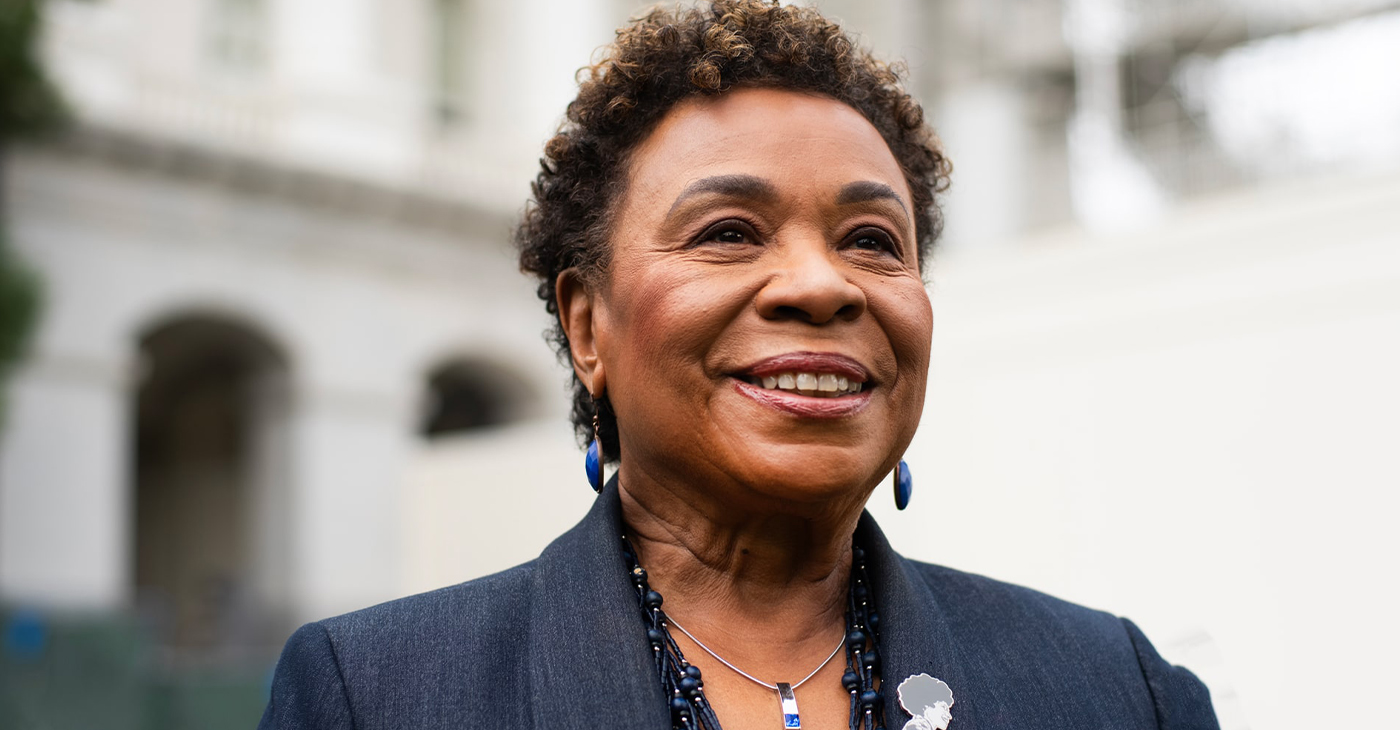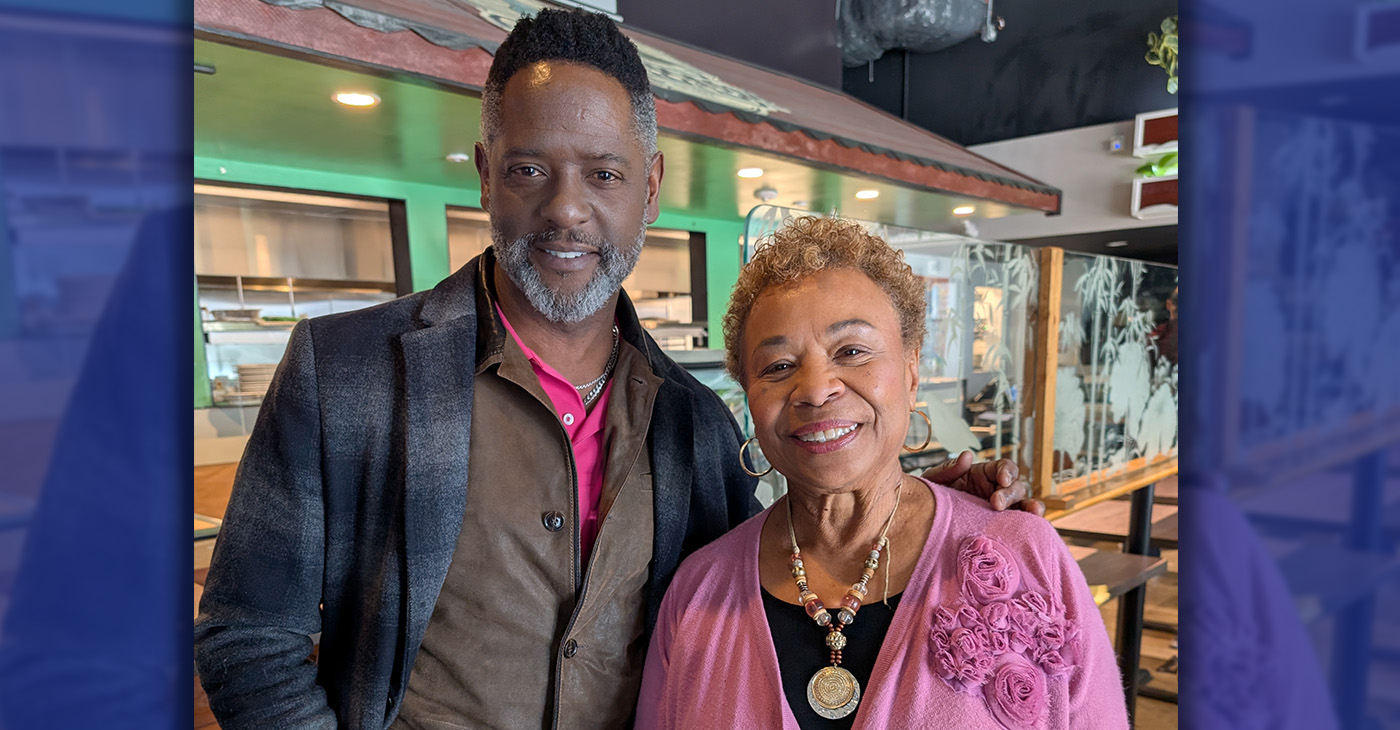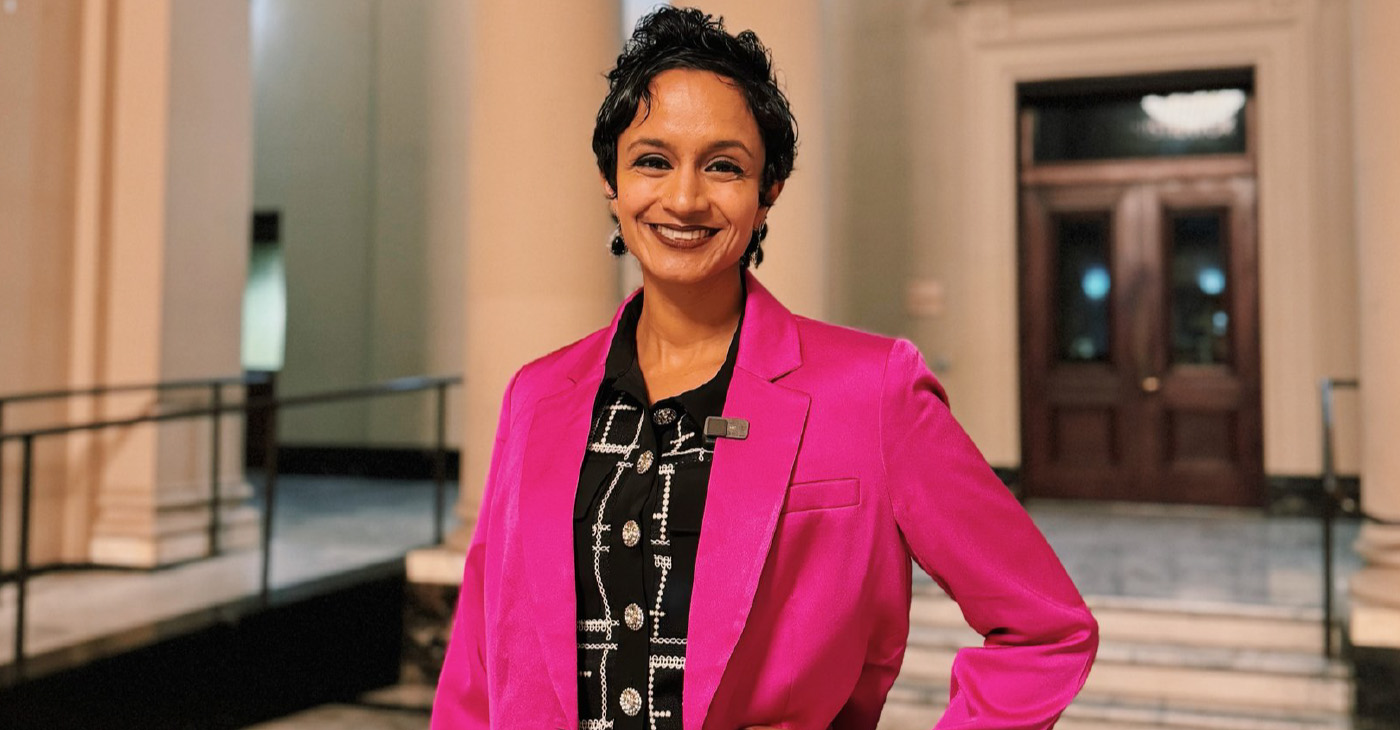Op-Ed
To Be Equal: Remembering Earl Lloyd
By Marc H. Morial
NNPA Columnist
“The NBA family has lost one of its patriarchs. Earl Lloyd, the first African-American to play in an NBA game, was as inspirational as he was understated. He was known as a modest gentleman who played the game with skill, class, and pride. His legacy survives in the league he helped integrate, and the entire NBA family will strive to always honor his memory.”
– Adam Silver, Commissioner, National Basketball Association
In an era that can boast of legendary feats of basketball from players such as Magic Johnson, Michael Jordan, LeBron James and countless other Black basketball players, one might find it difficult to remember, or believe, there was ever a time when Black athletes were not a significant presence on professional basketball courts.
But it would take nearly three and a half years after Jackie Robinson’s 1947 groundbreaking feat of becoming the first African American to play in Major League Baseball for the National Basketball Association to shatter its own color barrier with a 6-foot-5, 225-pound power forward named Earl Francis Lloyd.
Born in 1928 in Alexandria, Va., Lloyd, who had humble beginnings as the son of a coal yard and domestic worker, gave no hint to what he would come to accomplish both on and off court. As the star of West Virginia State University’s basketball team, Lloyd was even unaware he had been drafted until a campus friend told him she had heard a rumor he might be moving to Washington. That rumor proved true.
Lloyd was one of a trio of African American basketball players drafted in the historic, color-shattering 1950 draft. Lloyd was drafted by the Washington Capitols in the ninth round; Chuck Cooper – the first Black player drafted by an NBA team – was drafted by the Boston Celtics; and Harlem Globetrotter Nat “Sweetwater” Clifton joined the New York Knicks.
While all three men had already achieved significant milestones just by being drafted, Lloyd would be the first African American to take the court in the NBA, suiting up on October 31, 1950 for the Capitols’ season opener against the Rochester Royals, scoring six points and grabbing a game-high 10 rebounds.
“When Earl stepped out on the court on that fateful date in 1950, this remarkable man rightfully earned his place in the historic civil rights movement and, more important, he opened the door to equality in America,” remarked West Virginia State University President Brian Hemphill upon learning of Lloyd’s passing.
After playing seven games with the Capitols, Lloyd was drafted into the U.S. Army to serve in the Korean War. When Lloyd returned, he played for the Syracuse Nationals, where he made history again by becoming the first African American starter on an NBA championship team. Lloyd moved on to play and then coach for the Detroit Pistons. He became the first Black assistant coach with the Detroit Pistons in 1968 and became the team’s head coach in 1971.
Earl Lloyd has left behind quite a legacy for basketball, for professional sports and for our nation. We would surely do his legacy a disservice if we relegated the extraordinary achievements and universal accolades – including his 2003 induction into the Naismith Basketball Hall of Fame for breaking the NBA’s color barrier – to history. Lloyd’s journey through the ranks of the NBA, first as a player, and later as a coach, prove the game doesn’t end on the court—and neither do its struggles for diversity and inclusion.
According to the 2014 National Basketball Association Racial and Gender Report, 77 percent of all NBA players are African American, while almost 81 percent are people of color. Nearly 44 percent of all head coaches are coaches of color and, in a new record, slightly more than 46 percent of assistant coaches are coaches of color.
However, going further up the management chain, the numbers dip dramatically. Of the 30 teams that make up the NBA, only two have owners of color: Michael Jordan is the majority owner of the Charlotte Hornets and Vivek Ranadive is the controlling owner of the Sacramento Kings. According to the report, they are the first two owners of color to lead their teams in any major professional sports league. The boardroom – and more specifically, ownership — has clearly become the new frontier of diversity in the NBA and professional sports.
Lloyd once recounted the story of a fan he met, remembering “‘He said, ‘Mr. Lloyd, we really owe you,’ and I explained to him, ‘Man, you owe me absolutely nothing.’ I said, ‘Whatever kind of career I had, it has served me well, but you do owe some people, and the people you owe are the folks who are going to come behind you.’”
Lloyd’s debut on the NBA’s roster in 1950 was a historic moment that paved the way for so many of the basketball players we cheer, and those we jeer, but his achievements did not end there and neither should the NBA’s.
Marc H. Morial, former mayor of New Orleans, is president and CEO of the National Urban League.
###
Activism
Oakland Post Endorses Barbara Lee
Barbara Lee will be able to unify the city around Oakland’s critical budget and financial issues, since she will walk into the mayor’s office with the support of a super majority of seven city council members — enabling her to achieve much-needed consensus on moving Oakland into a successful future.

As we end the celebration of Women’s History Month in Oakland, we endorse Barbara Lee, a woman of demonstrated historical significance. In our opinion, she has the best chance of uniting the city and achieving our needs for affordable housing, public safety, and fiscal accountability.
As a former small business owner, Barbara Lee understands how to apply tools needed to revitalize Oakland’s downtown, uptown, and neighborhood businesses.
Barbara Lee will be able to unify the city around Oakland’s critical budget and financial issues, since she will walk into the mayor’s office with the support of a super majority of seven city council members — enabling her to achieve much-needed consensus on moving Oakland into a successful future.
It is notable that many of those who fought politically on both sides of the recent recall election battles have now laid down their weapons and become brothers and sisters in support of Barbara Lee. The Oakland Post is pleased to join them.
Activism
Actor, Philanthropist Blair Underwood Visits Bay Area, Kicks Off Literacy Program in ‘New Oakland’ Initiative
These community activations were coordinated with the San Francisco-based non-profit program “Room to Read.” Ray said he is also donating his time to read and take pictures with students to encourage their engagement and to inspire them to read more. The inspirational book “Clifford Ray Saves the Day” highlights Clifford Ray’s true story of saving a dolphin.

By Paul Cobb
New Oakland Series
Opinion Part 3
The Post mentioned three weeks ago that a number of our local luminaries were coming together to support the “New Oakland” movement. As this current national administration continues to eliminate our “legacy” institutional policies and programs left and right, most communities find themselves beyond “frozen” in fear.
Well, esteemed actor, long-time Bay Area supporter, and philanthropist Blair Underwood returned to Oakland this week to speak with city leaders, community trust agents, students, the Oakland Post, and local celebrities alike to continue his “New Oakland” initiative.
This week, he kicked off his “Guess Who’s Coming to Read” literacy program in some of Oakland’s middle schools. Clifford Ray, who played the center position of the 1975 World Champion Golden State Warriors, donated close to 1,000 books. Ray’s fellow teammate Charles “The Hopper” Dudley also gave Converse sneakers to students.
These community activations were coordinated with the San Francisco-based non-profit program “Room to Read.” Ray said he is also donating his time to read and take pictures with students to encourage their engagement and to inspire them to read more. The inspirational book “Clifford Ray Saves the Day” highlights Clifford Ray’s true story of saving a dolphin.
Underwood also spent quality time with the Oakland Ballers ownership group and visited the amazing Raimondi Park West Oakland community revitalization site. In the 1996 TV film Soul of the Game, Underwood played the role of the legendary first Black Major League Baseball player Jackie Robinson and commended the Ballers owners.
“This group of sports enthusiasts/ philanthropists needs to be applauded for their human capital investment and their financial capital investment,” Underwood said. “Truly putting their money and passion to work,” Underwood said.
Underwood was also inspired by mayoral candidate Barbara Lee’s open-minded invitation to bring public-private partnership opportunities to Oakland.
Underwood said he wants to “reinforce the importance of ‘collaborative activism’ among those most marginalized by non-empathic leadership. We must ‘act out’ our discomfort with passionate intentions to create healthy change.”
Activism
Councilmembers Ramachandran, Kaplan, Unger Identify Funds to Save Oakland Fire Stations
Our budget crisis – one of the worst in Oakland’s history – is compounded by the fact that people do not feel safe coming to Oakland due to our public safety crisis. By investing in our fundamental public safety resources today, we can send a signal to the world that Oakland is open for business. We have such a rich and vibrant culture, arts, and food scene that is worth celebrating – but we can only showcase this if we are able to keep our neighborhoods safe. Having fully functioning fire stations are absolutely essential to these efforts.

By Janani Ramachandran
There is no greater concern to the people of Oakland today than public safety. Fire stations are the bread and butter of essential city services – and every day that we have stations shuttered, we imperil the lives of our community members. In response to widespread outcry over the current and planned closure of stations, myself, along with Councilmembers Kaplan and Unger, have painstakingly worked to identify millions of dollars of new funding to save our stations. The legislation we introduced on Thursday, February 13th, will amend our budget to prevent the closure of four fire stations that are currently on the chopping block due to our budget crisis and will re-open two closed stations that have already been closed – Station 25 and 28 – in the near future. The resolution that will provide the funding to keep our stations open will go before the full City Council for a vote at our meeting on Tuesday, March 4th at 3:30 PM – and we invite you to join us at City Hall to share your perspective on the topic.
Our budget crisis – one of the worst in Oakland’s history – is compounded by the fact that people do not feel safe coming to Oakland due to our public safety crisis. By investing in our fundamental public safety resources today, we can send a signal to the world that Oakland is open for business. We have such a rich and vibrant culture, arts, and food scene that is worth celebrating – but we can only showcase this if we are able to keep our neighborhoods safe. Having fully functioning fire stations are absolutely essential to these efforts.
With the devastating Los Angeles fire at the top of people’s minds, terrible memories of Oakland’s own wildfires are re-surfacing from the 1991 Oakland Hills Firestorm to the Keller fire just a few months ago – and how essential fire stations are to mitigating these catastrophes. But in Oakland, our fire stations don’t just fight wildfires – they also provide emergency medical services to our most vulnerable constituents, put out structural fires and encampment fires, and much more.
We recognize that there are a number of competing interests and important initiatives fighting for sparse City resources. But from my perspective, core safety services are the most pivotal functions that a City must spend its resources on – especially given the outcry we have heard around fire stations.
The fight to save our stations is not over. The resolution we introduced is a critical first step, and there are hurdles to overcome. If you support keeping our fire stations open, we invite you to be a part of the solution by making your voice heard at the March 4th City Council meeting at 3:30 pm.
-

 Activism3 weeks ago
Activism3 weeks agoOakland Post Endorses Barbara Lee
-

 Activism4 weeks ago
Activism4 weeks agoOakland Post: Week of March 28 – April 1, 2025
-

 Activism3 weeks ago
Activism3 weeks agoOakland Post: Week of April 2 – 8, 2025
-

 #NNPA BlackPress3 weeks ago
#NNPA BlackPress3 weeks agoTrump Profits, Black America Pays the Price
-

 Activism2 weeks ago
Activism2 weeks agoOakland Post: Week of April 9 – 15, 2025
-

 #NNPA BlackPress3 weeks ago
#NNPA BlackPress3 weeks agoHarriet Tubman Scrubbed; DEI Dismantled
-

 #NNPA BlackPress3 weeks ago
#NNPA BlackPress3 weeks agoLawmakers Greenlight Reparations Study for Descendants of Enslaved Marylanders
-

 #NNPA BlackPress3 weeks ago
#NNPA BlackPress3 weeks agoTrump Targets a Slavery Removal from the National Museum of African-American History and Culture




























































